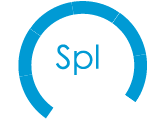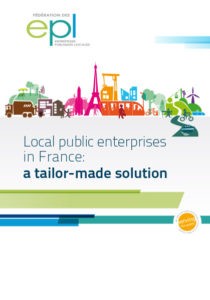 What is an Epl ? Local public enterprises (LPEs) serve local authorities, companies and citizens. They stand at the crossroads of private and public sectors, as they are real flexible and responsive businesses, while following general interest and community values. LPEs are organized under private law and deliver services of general interest. Public authorities hold at least 34% of the capital shares of these limited companies (Sociétés anonymes).
What is an Epl ? Local public enterprises (LPEs) serve local authorities, companies and citizens. They stand at the crossroads of private and public sectors, as they are real flexible and responsive businesses, while following general interest and community values. LPEs are organized under private law and deliver services of general interest. Public authorities hold at least 34% of the capital shares of these limited companies (Sociétés anonymes). - LPEs in France cover 40 areas such as urban planning, housing, tourism, transports, energy, waste management and water, have near 62,097 employees and generate a turnover of more than € 14,99 billion.
- LPEs form a network of more than 32,000 enterprises in Europe.
- LPEs take regularly part to European projects, mainly through structural funds.






